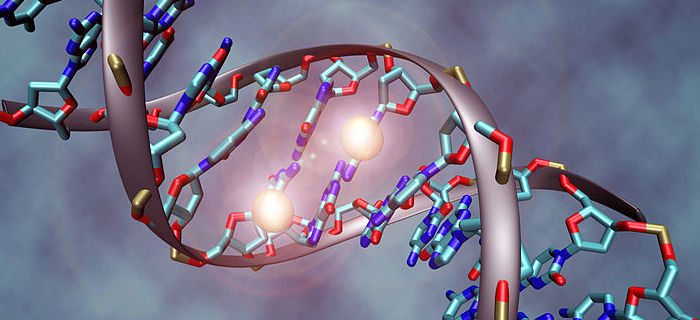
Whole genomic sequencing might be the “holy grail” of preventative medicine, but according to Dr. Gholson Lyon, widespread genomic sequencing might not be consumer accessible as soon as many would like.
Dr. Lyon runs the Lyon Laboratory at the Cold Spring Harbor Laboratory, focusing on analyzing human genetic variation and its role in severe neuropsychiatric disorders. By studying large pedigrees located in the same geographic area, they can minimize variants like environmental background and population stratification, and then utilize exome and whole genome sequencing to locate mutations that segregate with syndromes in the pedigrees.
To anyone less familiar with advances in genomic sequencing, that may sound like a mouthful. But Lyon’s research could lead to advances in the identification and treatment of disorders like Tourette Syndrome, ADHD, obsessive compulsive disorder, mental retardation, autism, and other neurologic disorders.
Sequencing the human genome, first accomplished in 2000, has the potential to change how we approach healthcare at the most basic levels. In theory, physicians and health care professionals will be able to utilize the information gathered through whole genome sequencing to predict which diseases a person might suffer from in the future. Then they can either preemptively minimize the impact of these diseases or even avoid them entirely through preventative medicine.
However, taking whole genome sequencing from the laboratory to the commercial marketplace faces major hurdles. One of the largest is FDA approval for genetic sequencing technologies. The FDA traditionally adopts a conservative attitude towards new technologies, which in the case of genome sequencing company 23andme.com, resulted in a ruling forbidding the sale of their kits. The ruling was issued as a result of health related genetic reports provided by the company, which the FDA argued could lead to unnecessary diagnostic testing.
However, whole genome sequencing is here to stay, and it’s not a question of if but when it begins to have a massive impact on how we approach healthcare.
“It’s a bit of a chicken and the egg problem,” says Lyon. The more people whose genomes are sequenced, the more data researchers will be able to analyze and discover conclusions. This would require millions of whole genome sequences to study. Unfortunately, “it’s hard to incentivize genetic testing. Most people don’t just automatically do research for the altruism of it.” People want to participate when they get some sort of product back, and getting FDA approval for genetic conclusions is a regulatory hurdle.
At the core of the debate lies how you view genetic information and approach the dissemination of that information. The danger with genetic sequencing lies in proving a correlation between a genetic mutation and a disease, and assuming causation where there is none. Says Lyon, “it boils down to one’s philosophy, if one is more libertarian vs paternalistic. The people that want to protect the consumer from any possible danger, those kinds of people would make the argument that 23andme was making rather bold interpretations. People who are more libertarian like myself argue that information should just be provided, and people can make their own reasoned decisions and seek second opinions.”
An interesting application of whole genome sequencing that may help bring the technology to a wider marketplace is genealogy. Currently, companies like Ancestry.com and 23andme.com are offering genetic testing for ancestry searches and family trees. This field, which is currently not regulated by the FDA, could still provide valuable medical data about how genetic diseases run in families according to Dr. Lyon. But he believes that the first major inroads of genetic sequencing to the consumer marketplace will occur in targeted genetic sequencing. Looking at a smaller section of the genome helps control “false-positives.”
When a new technology offers so much promise from both a medical and business standpoint, the temptation is to move too quickly. Says Lyon, “the history of medicine is littered with the carcasses of positive studies that were then over-hyped, oversold, and eventually discredited.”
While whole genotype sequencing is still a bit of the “wild west” according to Dr. Lyon, as more and more genetic samples are collected and analyzed, our understanding of how our genes contribute to diseases will also increase, allowing medicine to prevent or minimize diseases that run in families.







